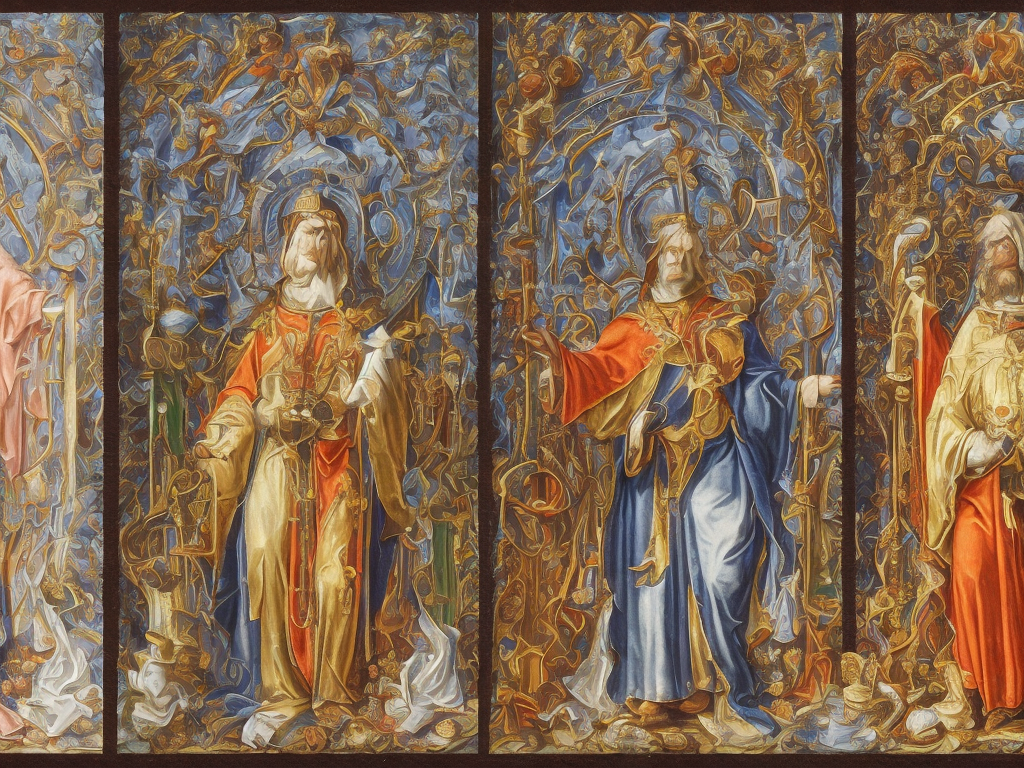
Protestantism and Catholicism are the two primary branches of Christianity, and while they share many beliefs, they also have significant differences. These differences have been the cause of much debate, conflict, and even war throughout the centuries.
One of the most significant differences between Protestants and Catholics is their views on the nature of God. Protestants believe in the Trinity, which means that there is one God who exists in three persons: the Father, the Son (Jesus Christ), and the Holy Spirit. Catholics also believe in the Trinity, but they also believe in the concept of "The Communion of Saints," which includes the Virgin Mary, the apostles, martyrs, and other holy men and women who have lived throughout history. They believe that these saints can intercede on behalf of those who pray to them.
Another significant difference between Protestants and Catholics is their beliefs about salvation. Protestants believe in the doctrine of sola fide, which means "faith alone." They believe that salvation is attained through faith in Jesus Christ alone, and that good deeds or works cannot earn salvation. Catholics, on the other hand, believe in the concept of faith and works. They believe that faith in Jesus Christ is necessary for salvation, but that good works are also essential. They believe that good works are a demonstration of faith, and that they have a role in earning salvation.
One of the most visible differences between Protestants and Catholics is their worship practices. Protestants tend to have more informal and contemporary worship services, while Catholics have more traditional and formal services. Catholic services involve the sacraments, which are considered to be outward signs of inward grace. Protestants, meanwhile, tend to focus more on preaching and evangelism.
Another important difference between Protestants and Catholics is their organizational structure. Protestants tend to have a more decentralized organization, with individual congregations having a high degree of autonomy. There is no central authority in Protestantism, and different denominations can have widely differing beliefs and practices. Catholics, on the other hand, have a highly centralized hierarchy, with the Pope serving as the ultimate authority. The Catholic Church has a strict set of beliefs and practices that are followed by all Catholics around the world.
The role of the Bible is also a source of difference between Protestants and Catholics. Protestants believe in the importance of reading and studying the Bible, and many denominations emphasize personal interpretation of the text. Catholics, meanwhile, believe in the importance of the Bible, but they also believe in the importance of tradition and the teachings of the Church. Catholics believe that the Bible must be understood within the context of the Church's teachings and the Catholic tradition.
Finally, the two branches of Christianity also differ in their beliefs about the role of the clergy. Protestants do not recognize the concept of the priesthood, and each congregation has its own set of leaders. Catholics, on the other hand, have a highly organized hierarchy of priests, bishops, and cardinals who are responsible for leading the Church.
Despite these differences, Protestants and Catholics share many similarities. Both believe in the importance of Jesus Christ and the importance of outreach and evangelization. Both also share a commitment to social justice and the importance of serving those in need.
In recent times, both Catholics and Protestants have adapted to the challenges of the modern world. Many Catholic churches now have contemporary worship services, and many have taken steps to make their teachings more accessible to modern audiences. Protestants, meanwhile, have also adapted to the rapidly changing culture, embracing new forms of outreach and evangelism, and focusing on the needs of the younger generations.
In conclusion, Protestants and Catholics share many similarities, but they also have significant differences in their beliefs, practices, and organizational structures. Despite these differences, both branches of Christianity have played a vital role in shaping the course of history and continue to play an important role in the lives of millions of people around the world. Ultimately, the differences between Protestants and Catholics should be celebrated as an expression of the diverse ways in which human beings seek to connect with God and to understand the mysteries of faith.
 Self-Instruct
Self-Instruct